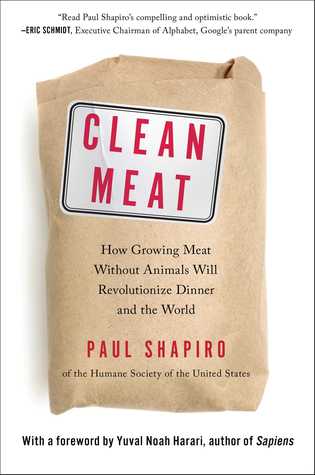More on this book
Community
Kindle Notes & Highlights
by
Paul Shapiro
Read between
March 20 - March 21, 2020
Just as we need clean energy to replace fossil fuels, we need clean meat to replace factory farms. Switching to clean meat will be crucial for saving the planet from disastrous climate change and ecological degradation.
“Imagine sitting down to an eight-ounce steak, and then, imagine the room filled with 45 to 50 people with empty bowls,” Lappé wrote. “For the feed cost of your steak, each of their bowls could be filled with a cup of cooked cereal grains.”
The Center for Biological Diversity recognizes this crucial connection between what we put on our plate and whether many species will have a planet to live on. That’s why the environmental nonprofit launched a campaign called “Take Extinction Off Your Plate,”
Growing muscle, they noted, just requires taking the cells from skeletal muscles (the kind of meat we typically eat), isolating them, and affixing them to a scaffold that could help anchor them while they proliferate just as they would in an animal’s body. Those scaffolds could be made of collagen mesh or even microcarrier beads, all while being rotated in a bioreactor (a fancy word for a steel drum in which cell culture takes place) with electrical stimulation that keeps the cells exercising and warm.
When they asked Matheny if people would balk at the thought of eating meat grown in a lab, he rebutted, “There’s nothing natural about a chicken that’s given growth promoters and raised in a shed with ten thousand others.
In his meetings with venture capitalists and agribusinesses alike, the biggest pushback Matheny got when describing in vitro meat was that it was just “unnatural.” He found this criticism deeply frustrating. “Flying, using email, air-conditioning, reading books, eating foods that grew on the other side of the world—they’re all unnatural and extremely new on the timeline of humanity’s existence,” Matheny points out. “We should celebrate these innovations and appreciate how much better they make our lives.”
Bristling that the Times had referred to it as “fake meat,” Plous protested in his letter: “The commercial development of meat from animal tissue won’t result in ‘fake meat’ any more than cloning sheep results in fake sheep. Quite the contrary, lab-based techniques have the potential to yield far purer meat, uncontaminated with growth hormones, pesticides, E. coli bacteria, or food additives. A more accurate name for the end result would therefore be ‘clean meat.’ ”
“There are basically three things that can happen going forward,” Brin predicts. “One is that we all become vegetarian. I don’t think that’s really likely. The second is we ignore the issues and that leads to continued environmental harm, and the third option is we do something new.”


